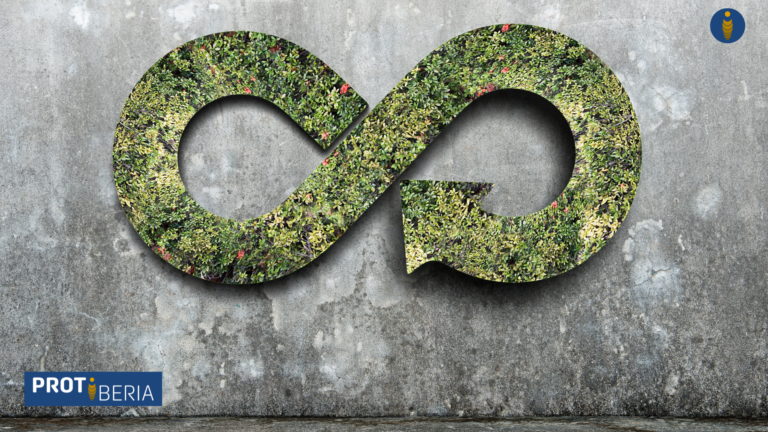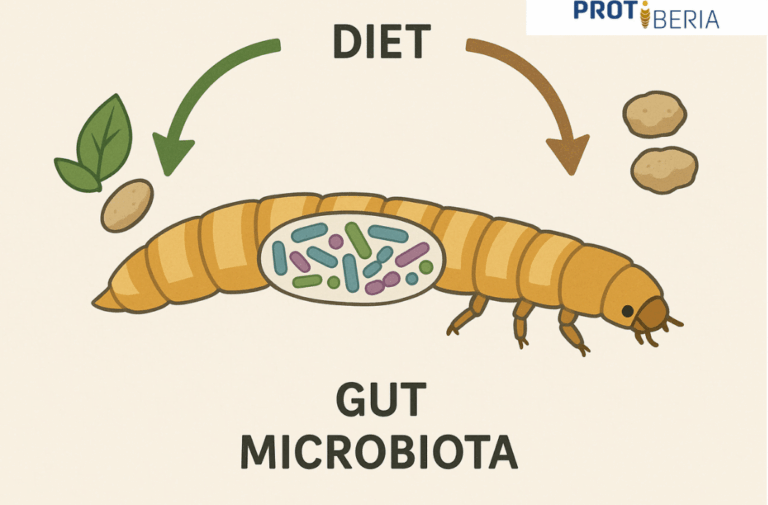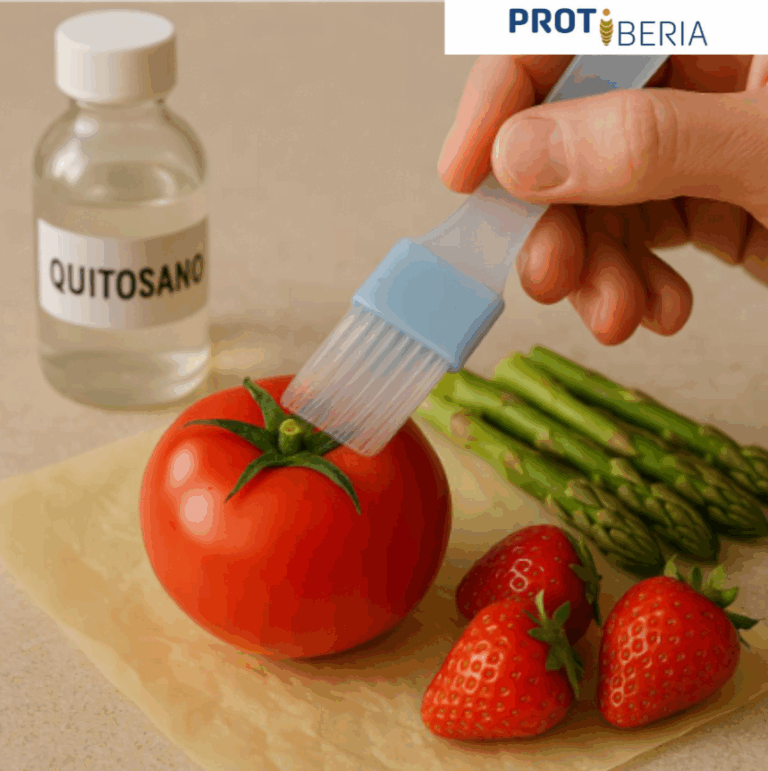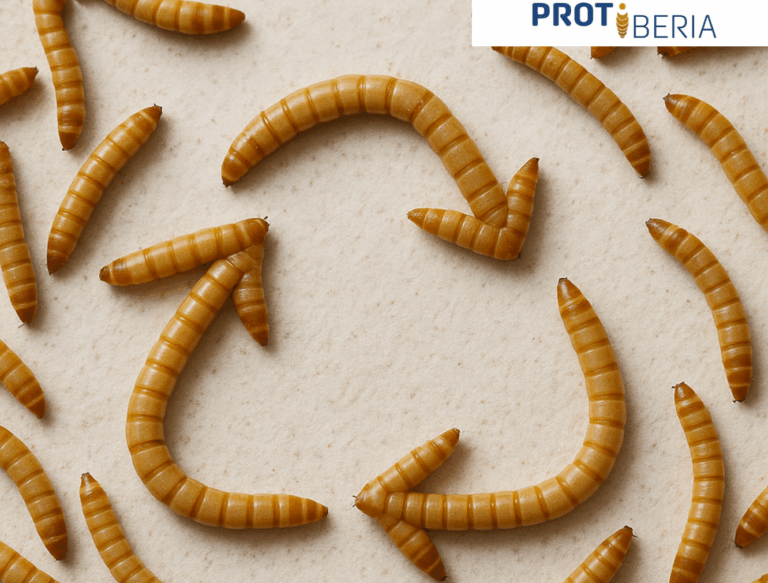| The use of mealworms (Tenebrio molitor) for animal feed production leads to an improvement in sustainability and efficiency in how we produce our food, contributing to a shift in the economy. |
On average, every European consumes 14 tons of raw materials per year while generating 5 tons of waste. This is one facet of the throwaway economic model that has been predominant since the Industrial Revolution in the 19th century.
In Spain, according to European sources, approximately 129 million tons of waste were generated in 2016, of which only 37% were recycled, highlighting the significant waste of resources to sustain our economy.
The circular economy is an economic model aiming to replace this highly inefficient linear model with one that prolongs the lifespan of products in the market, thereby reducing the use of new raw materials and waste generation.
The principles of this new economic system are based on:
- Preventing waste generation through intelligent design and consumption
- Reusing and valorizing by-products
- Recycling
The main reason we need to adopt this new economic model is due to population growth, which, in a traditional linear economy, leads to an increasingly higher use of raw materials and natural resources to meet the demands of that population.
Considering that we live on a finite planet with limited raw materials and natural resources, it becomes evident that we urgently need to change our economic model if we want to avoid economic and social tensions that could destabilize our societies.
The Agri-food, Fishing, and Forestry Sector
The agri-food, forestry, and rural environment sectors also need to adopt the principles and goals promoted in the circular economy. Recently, the Ministry of Agriculture, Fisheries, and Food has been promoting the “More Food, Less Waste” strategy aimed at reducing food losses and waste, valorizing by-products, and encouraging responsible and efficient consumption techniques.
This valorization of by-products implies that what is considered waste for a particular industry within the sector becomes a raw material for another, thereby reducing the need and dependency on raw materials that often have to be imported from other countries.
In this regard, the production of traditional animal-based foods (meats, fish) has a significant impact on the environment due to their high feed requirements (often imported from distant countries), water, and grazing needs. However, we still need to continue producing these foods as they are an indispensable source of protein to achieve a balanced diet.

Therefore, there is an imperative need to develop the production of alternative sources of protein, both for animal consumption in the form of feed and directly for human consumption. This is where insects come into play.
Insects as Food for the Agri-food Sector
Insects boast a highly appealing nutritional composition for their use in food production, whether as animal feed in livestock industries (such as poultry, pigs, fish farms, etc.) or for direct human consumption. Their protein content typically hovers around 60%, depending on the species. Additionally, their nutritional lipid content is beneficial, featuring an oleic acid profile suitable for human consumption.
Simultaneously, insects exhibit high efficiency in nutrient utilization, meaning they require very little food and water to increase their weight, or in other words, they display high feed conversion rates. For every kilogram of insects raised, only 1.5 – 2 kilograms of food are required, while in other traditional livestock sectors, more than double the amount is needed.
Furthermore, the food sources necessary for insect production on farms are often by-products from other agri-food industries with low value, such as spent grains from the brewing industry after fermentation, yeasts, or cereal flours unfit for human consumption.
Among all the insects available for producing proteins for animal feeds and human consumption, the mealworm (Tenebrio molitor) exhibits characteristics that make it particularly interesting in embracing the paradigm shift associated with adopting a circular economy in food production.

From Protiberia, we are contributing to the adoption of this new economic system by producing Tenebrio molitor for both animal and human use, utilizing locally generated agricultural industry waste. This approach helps close the loop of the new bioeconomy model.
We are deeply committed to sustainability and the environment, and what better way to achieve this goal than by mimicking nature itself? By using Tenebrio molitor to recycle the waste produced by the agricultural industry and produce high-quality protein sustainably and safely.
We contribute to improving the relationship between agriculture, livestock, and the environment, making them more sustainable for our current generation and those to come.
References
Circular economy action plan. European Commission
https://environment.ec.europa.eu/strategy/circular-economy-action-plan_en
Estrategia Española de Economía Circular. Ministerio para la Transición Ecológica y el Reto Demográfico. Gobierno de España
https://www.miteco.gob.es/es/calidad-y-evaluacion-ambiental/temas/economia-circular/estrategia/



